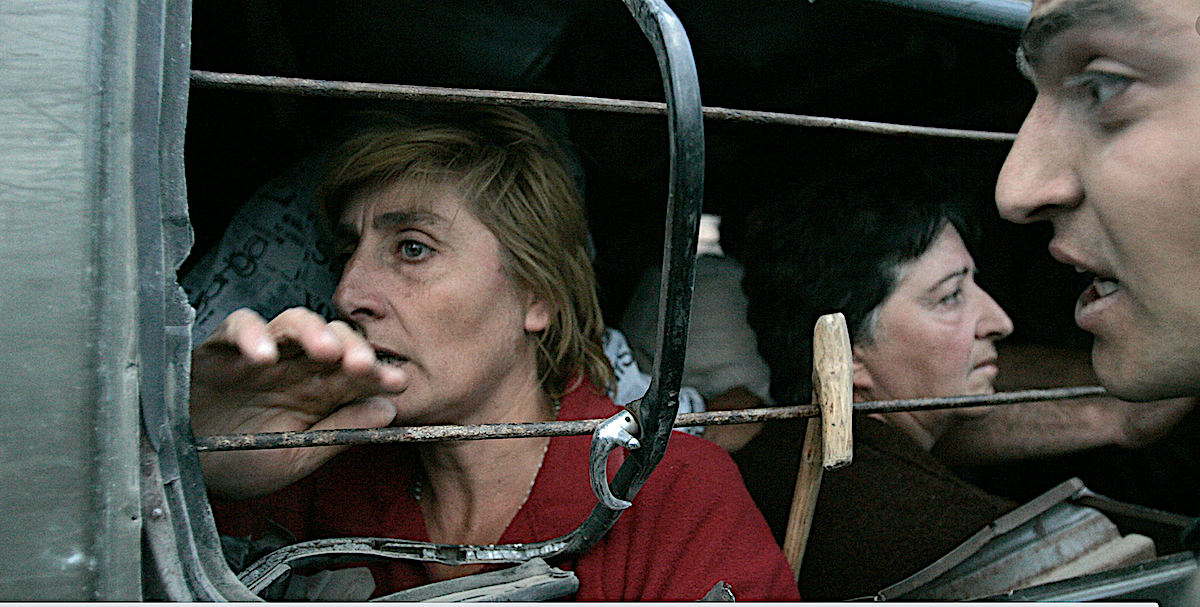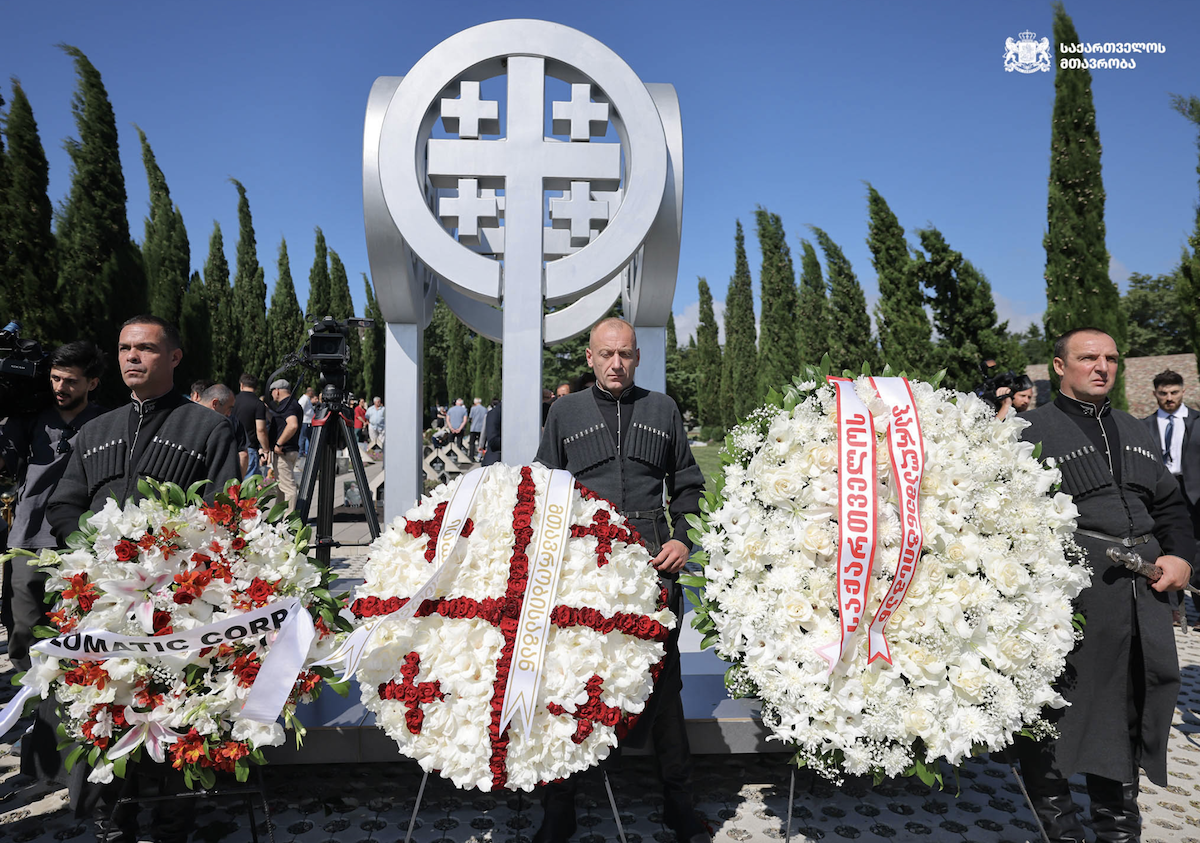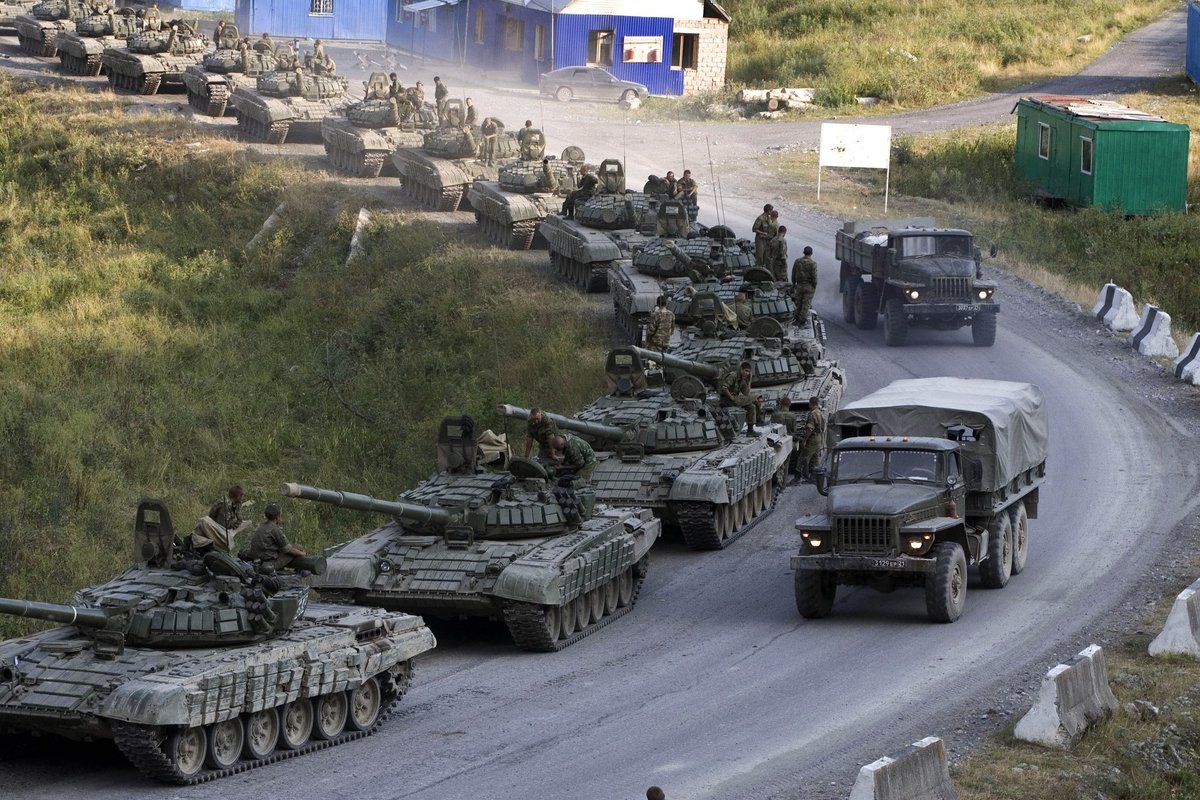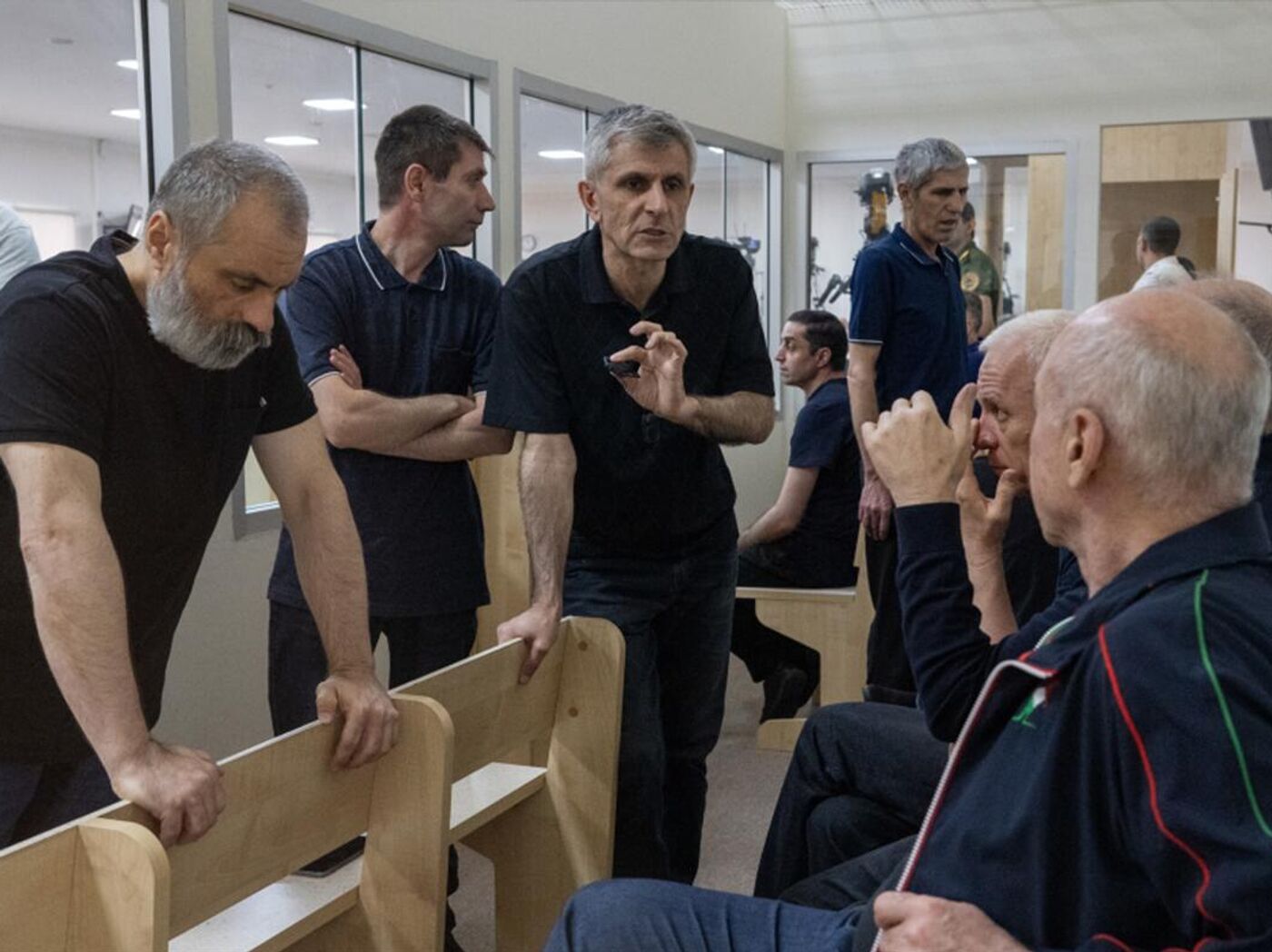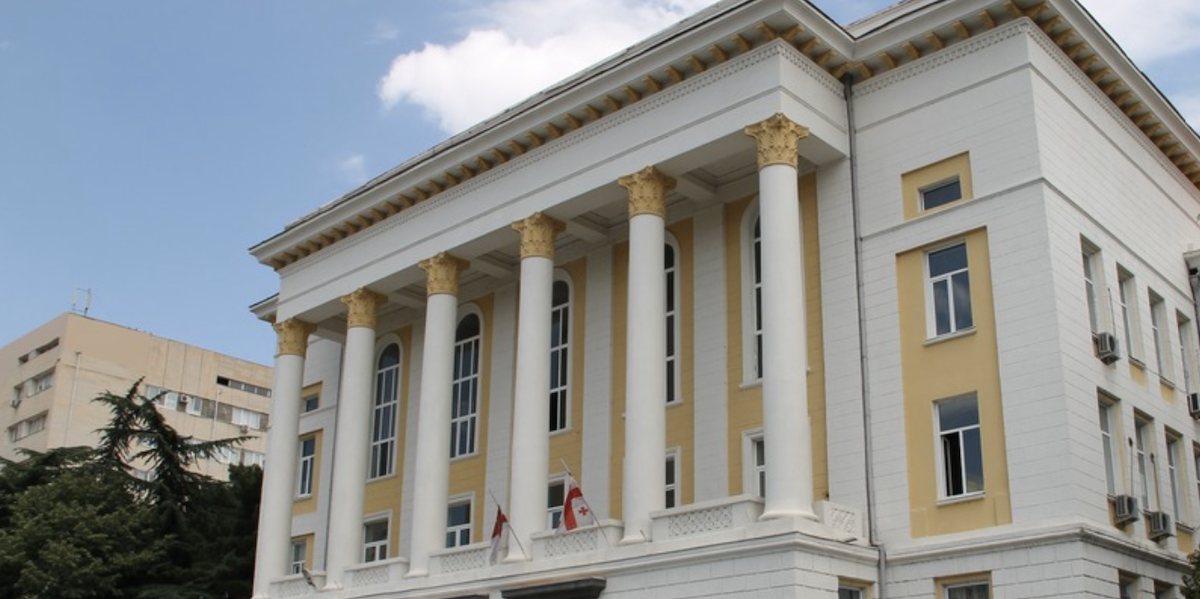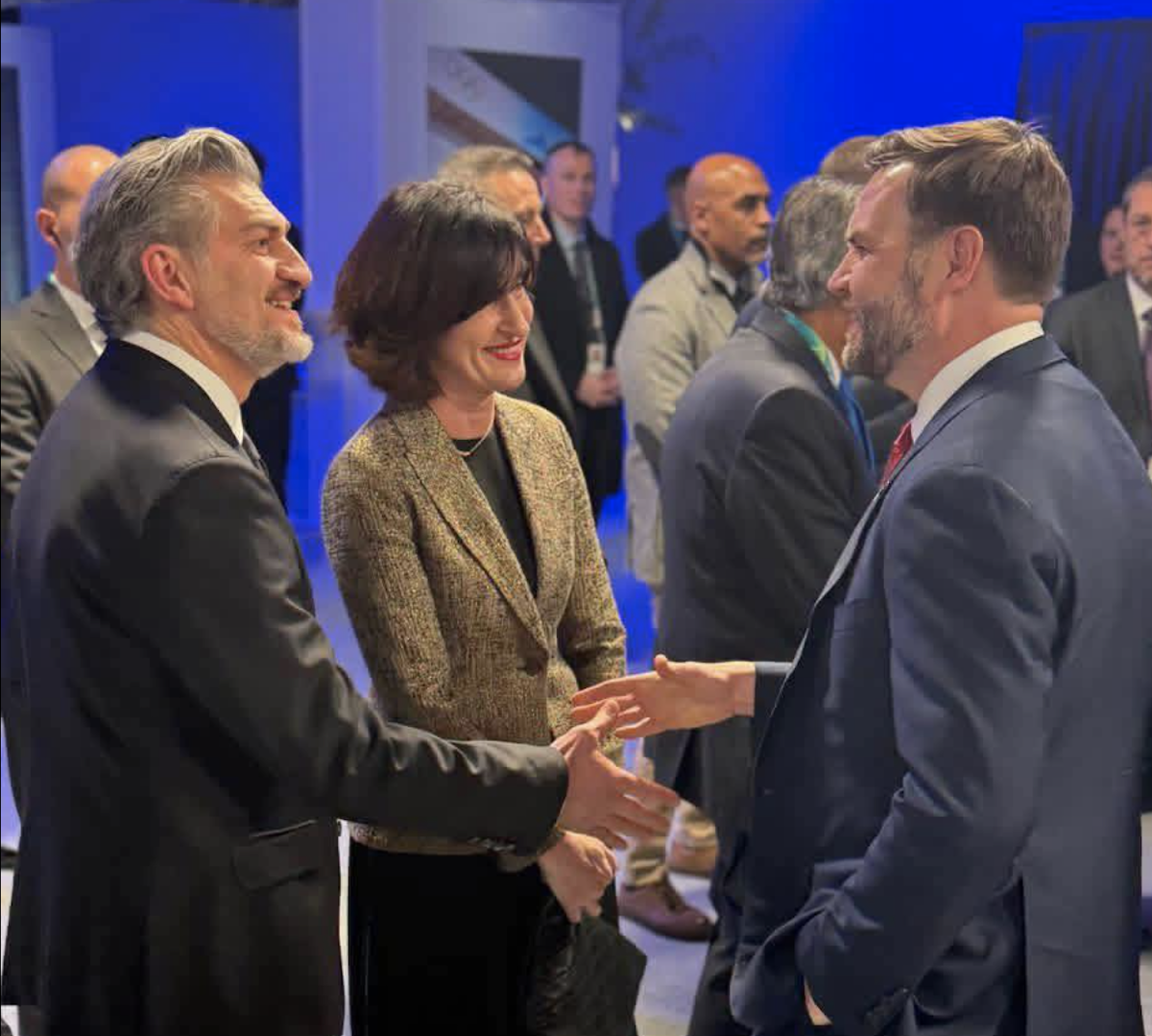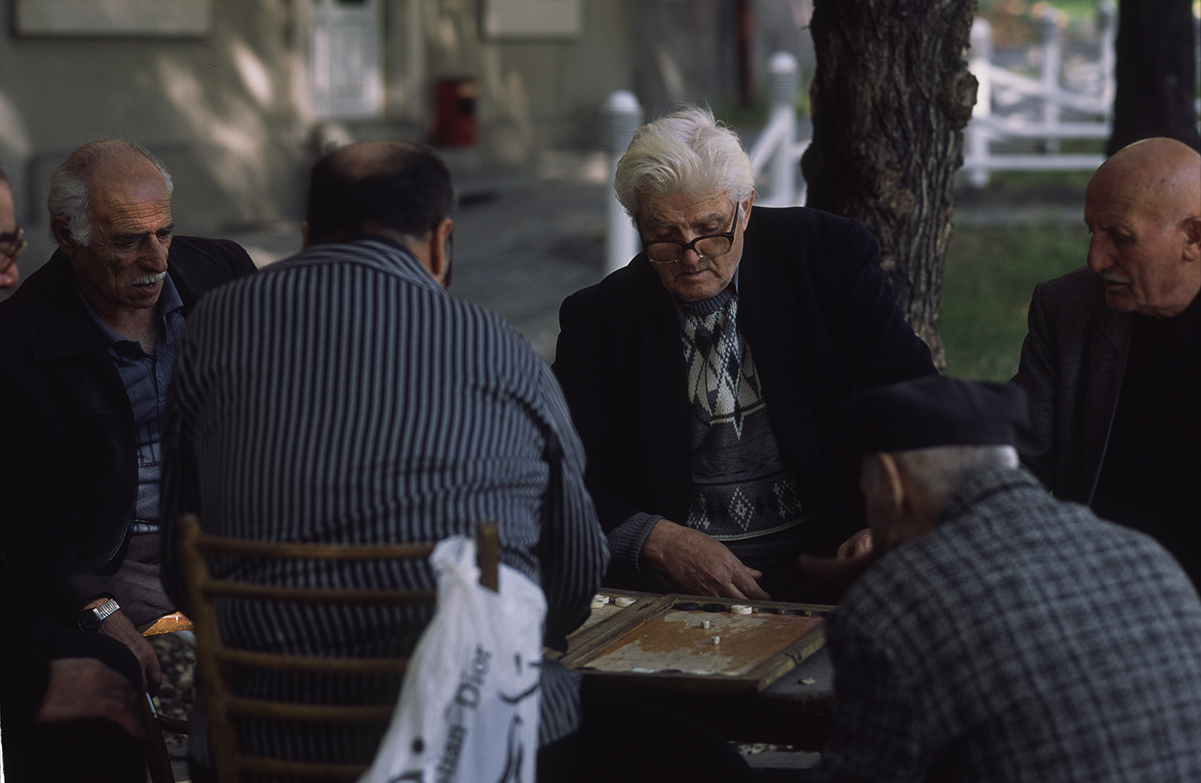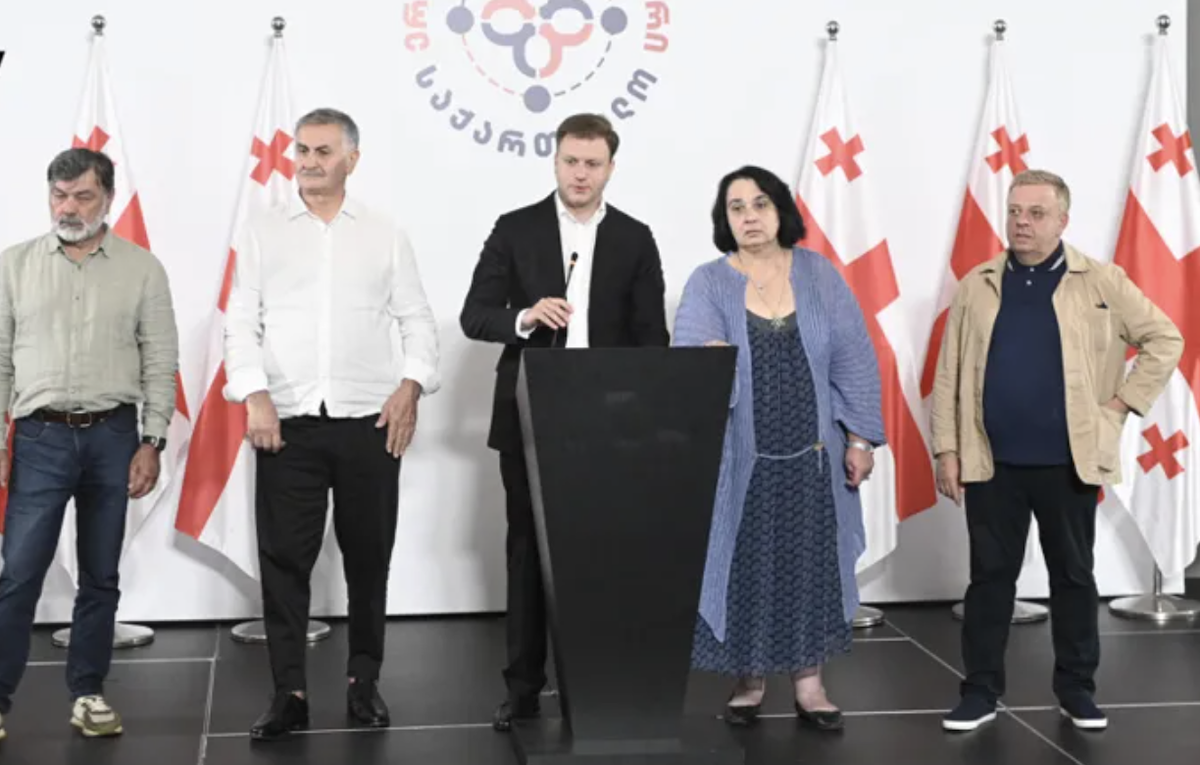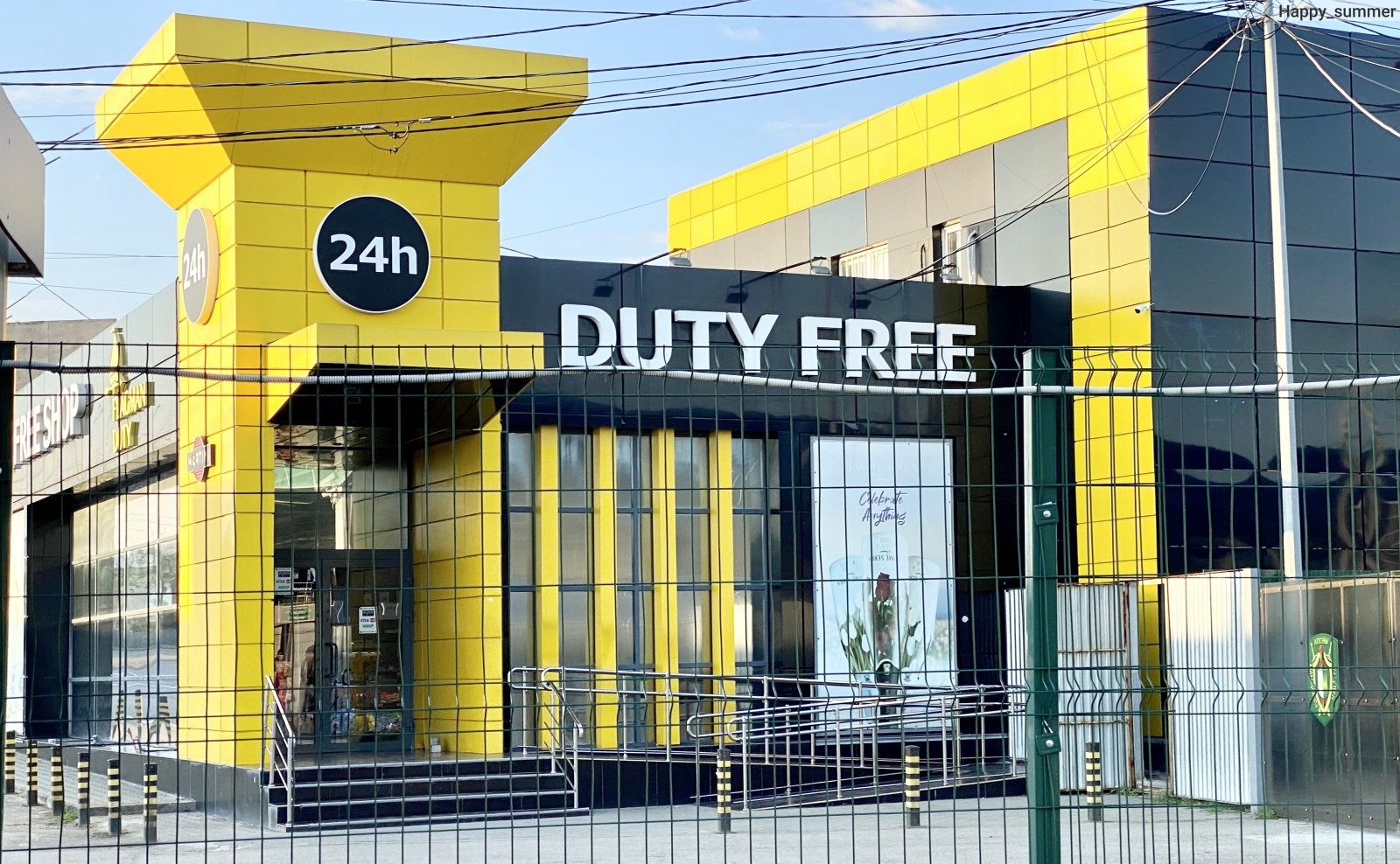Georgian Dream claims Saakashvili started 2008 war on US orders — backed by Russia’s Foreign Ministry
Georgian Dream on the 2008 war
Nearly all leaders of Georgian Dream have repeated the Kremlin’s disinformation narrative that Georgia started the August 2008 war, following similar remarks from prime minister Irakli Kobakhidze.
Russian Foreign Ministry spokesperson Maria Zakharova also backed the Georgian government’s statements, saying Georgia must sign a non-use-of-force agreement with Abkhazia and South Ossetia — regions currently under Russian occupation.
8 August marked the 17th anniversary of the 2008 Russia–Georgia war over the breakaway region of South Ossetia. Most of Georgian society — as well as the entire political opposition — blames Russia for starting the war and occupying Georgian territory.
Western allies of Georgia share this position and continue to express firm support for the country’s territorial integrity. US Senator Jeanne Shaheen, a senior member of the Senate Foreign Relations Committee, issued a statement on the anniversary, reiterating that stance.
“Russia’s 2008 invasion of Georgia should have been a wake-up call for the international community about its intent to dominate its neighbours. The Kremlin’s brutal actions in Georgia preceded its war in Ukraine — including the current full-scale invasion,” she said.
“The Georgian people know what the so-called ‘Russian world’ brings — and that’s why they are fiercely resisting Georgian Dream’s efforts to push the country toward Russian-style authoritarianism.
“On this anniversary, the United States must continue to stand against Russia’s illegal annexation of Abkhazia and South Ossetia.”
Shaheen went on to express deep concern about what she called Georgian Dream’s erosion of democratic values and betrayal of the Georgian people’s Euro-Atlantic aspirations.
“If the government wants to honour the victims of Russian aggression, it should release political prisoners — including journalist Mzia Amaghlobeli — and reaffirm its commitment to a democratic future for Georgia.
“I will continue to stand with the Georgian people and redouble my efforts to pass the bipartisan, bicameral Making Emerging Geopolitical Orientations Balanced and Accountable with Responsible Investments Act — or MEGOBARI Act.”
What Georgian Dream officials said
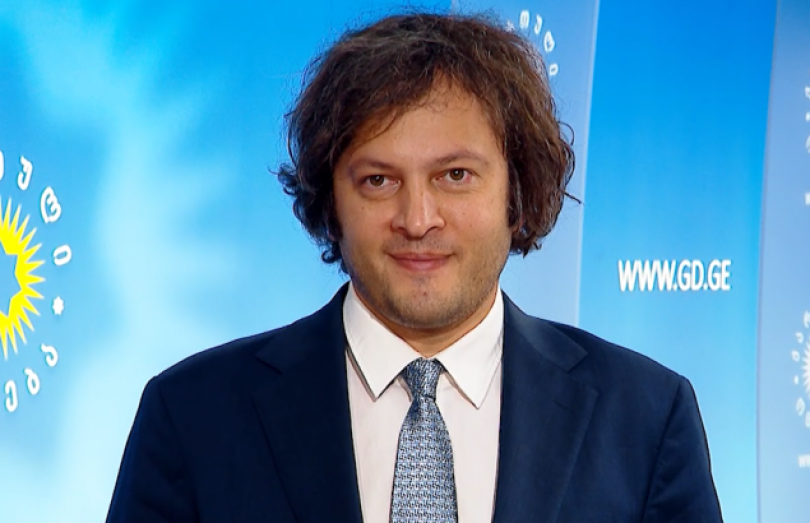
Irakli Kobakhidze, prime minister from Georgian Dream:
“Saakashvili started the war at the urging of external forces, on orders from the US State Department. The timeline of events is reflected, among other places, in a Council of Europe resolution and the Tagliavini Report, which state that on 7 August 2008, the regime at the time opened artillery fire on Tskhinvali, and the following day Russian troops entered Georgia.
The facts are there in the Council of Europe’s resolution. There was an escalation, yes — but it turned into a full-scale war after the regime launched an unannounced assault on Tskhinvali. At dawn on 8 August, they proudly told us they were capturing village after village. <…> This wasn’t a defensive operation. They openly declared that they were restoring constitutional order and launching offensive operations to do so.”
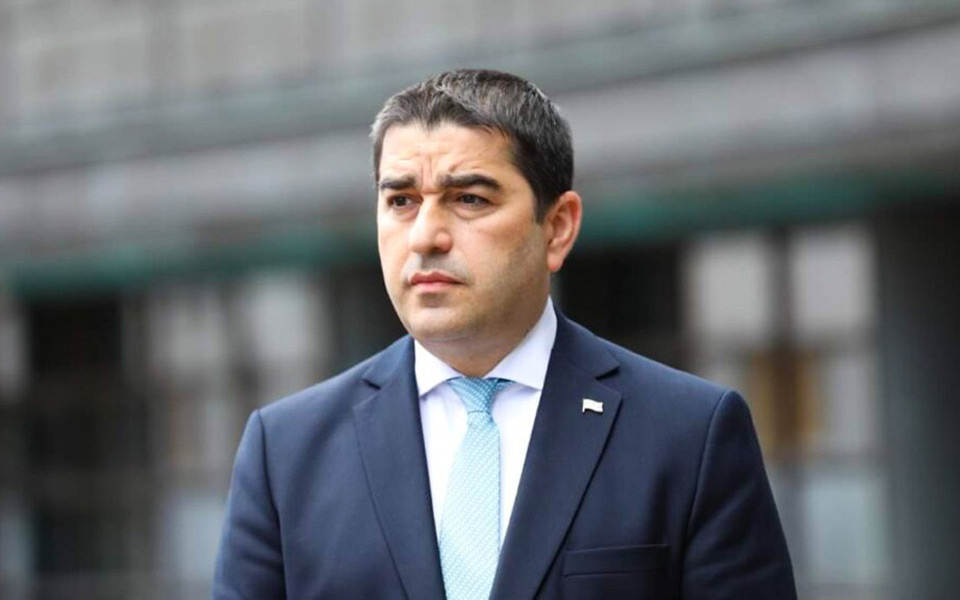
Shalva Papuashvili, chair of Georgian Dream’s parliamentary faction:
“In 2008, we had a puppet regime in the form of the United National Movement and Mikheil Saakashvili. That regime served the interests of others, not of Georgia. The result was the August war, followed by decisions that exposed their hypocrisy — on the one hand, talking about occupation, and on the other, backing Russia’s accession to the World Trade Organization. Whatever orders they were following, whatever interests they were serving, this is how they acted. That’s the difference between a puppet government and a patriotic one.
When the threat of war can emerge at any moment, a government must act in the national interest — not in the interest of foreign powers.
How can a traitor and a puppet have anything in common with Georgian heroes? Saakashvili has nothing to do with them, nothing to do with our country — its past or its future. He was a traitor, and he will remain one in our history.”
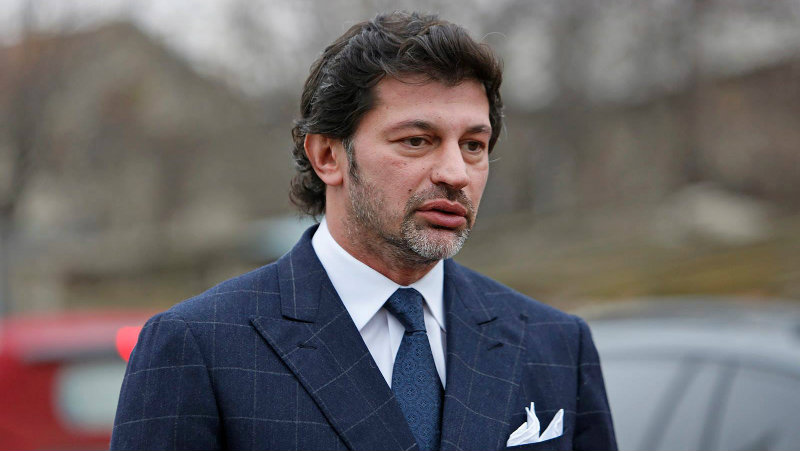
Kakha Kaladze, Mayor of Tbilisi:
“As for the war, unfortunately, the policies pursued by the United National Movement clearly didn’t serve Georgia’s interests — they served the interests of other countries or groups.
The August 2008 war showed us that the international community responds with little more than expressions of ‘concern’. It showed us exactly what a government should not be.”
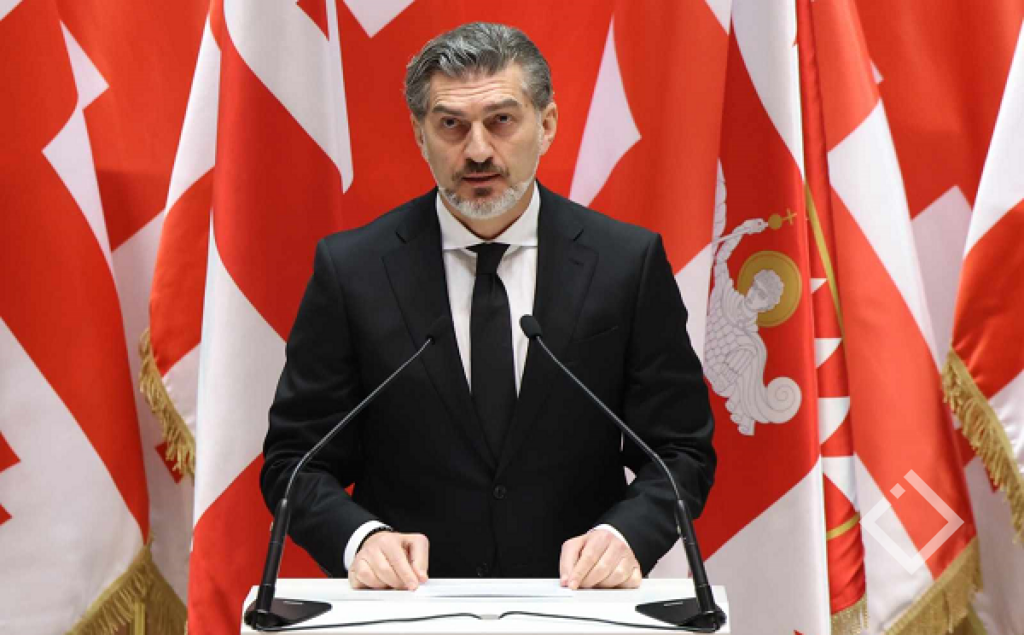
Mikheil Kavelashvili, president from Georgian Dream:
“Do you remember August 2008? Do you remember 7 August? What was the government saying at the time? On 7 and 8 August, were they talking about a Russian invasion? Is there any record of that?
Why didn’t they inform the public about the Russian army crossing the border on 7 August?”
Russian Foreign Ministry spokesperson Maria Zakharova welcomed Georgian Dream’s statements, saying they gave hope for “progress in negotiations.”
Speaking about the August war, Zakharova repeated familiar Kremlin propaganda lines, claiming that Georgia should sign a non-use-of-force agreement with the de facto authorities in occupied Abkhazia and South Ossetia.
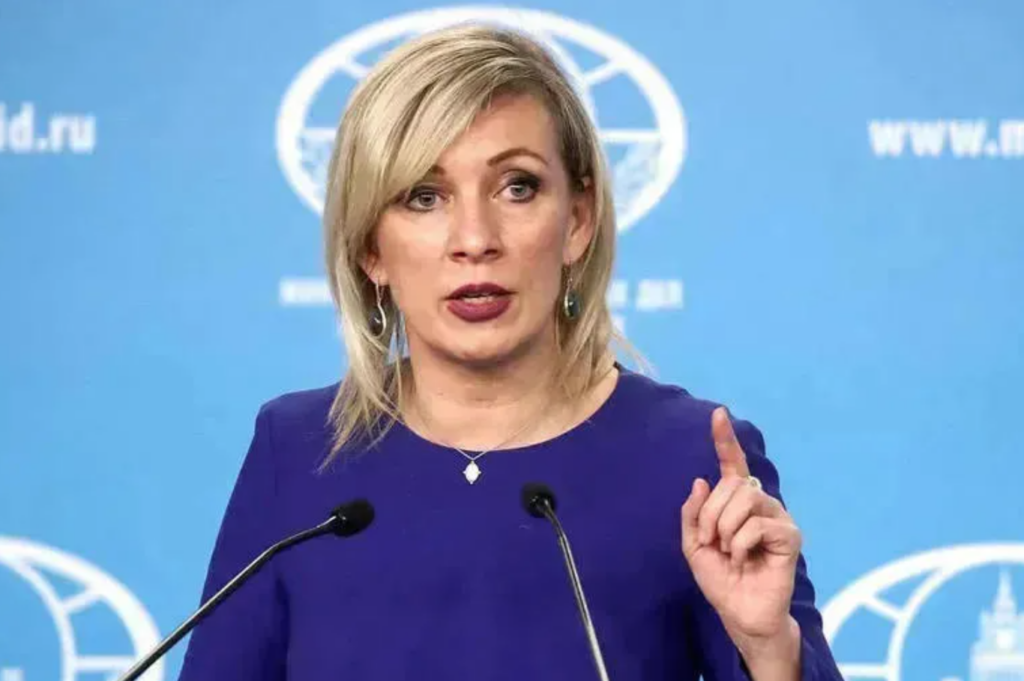
“The top priority is for Georgia to sign a legally binding agreement on the non-use of force towards Abkhazia and South Ossetia,” said Zakharova. “Such a deal would not only help prevent a repeat of the tragic events of August 2008, but also serve as a starting point for normalising relations between Tbilisi, Sukhumi and Tskhinvali.”
She also welcomed the Georgian Dream government’s recent statements, saying that “Georgia’s official recognition of Mikheil Saakashvili’s aggression against South Ossetia, as well as its calls for reconciliation with the Abkhaz and Ossetians, offer hope for progress in negotiations.”
“There is now a chance to move talks forward,” Zakharova added, “as the Georgian government has publicly acknowledged Saakashvili’s aggression against South Ossetia and has spoken about the need for reconciliation.”
“It is important,” she said, “that these statements become central to Tbilisi’s approach to restoring ties with Sukhumi and Tskhinvali — and that they lead to real, practical steps.”
Georgian Dream on the 2008 war
News from Georgia










